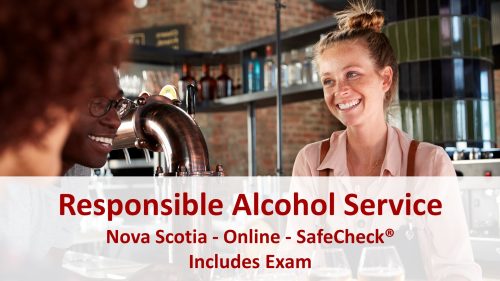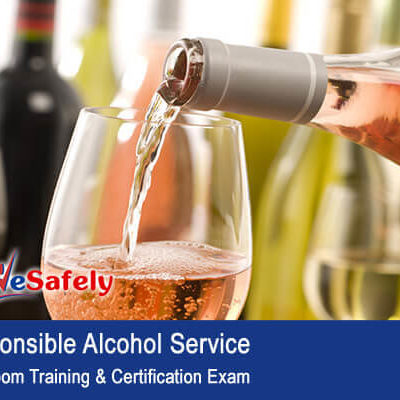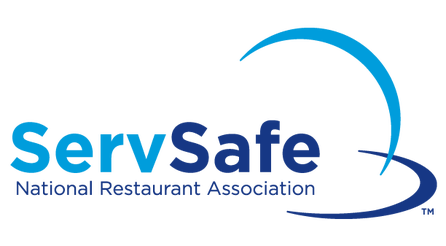Master Liable Alcohol Solution With Comprehensive Accreditation Programs
The mastery of liable alcohol solution is not just a regulative demand; it is an essential aspect that boosts the online reputation and operational integrity of establishments within the hospitality sector. What challenges lie in advance for those that look for to elevate their service standards?

Relevance of Liable Alcohol Solution
Responsible alcohol solution is vital to promoting public health and safety in facilities that serve alcoholic drinks. It encompasses a variety of practices made to avoid the overconsumption of alcohol, reduce the danger of alcohol-related injury, and make certain a risk-free environment for customers and staff alike. By upholding accountable solution requirements, facilities can reduce possible incidents of drunkenness, which may lead to accidents, physical violence, or various other negative end results.
In addition, accountable alcohol service enhances the total client experience. Patrons are most likely to return to establishments that prioritize their safety and security and well-being. This commitment fosters a favorable reputation, motivating referral recommendations and repeat organization. Additionally, establishments that comply with accountable solution techniques usually experience reduced insurance coverage premiums and decreased legal liabilities.
Furthermore, executing liable alcohol service practices lines up with more comprehensive public wellness initiatives aimed at lowering drug abuse and advertising neighborhood wellness. This proactive technique not only shields individual patrons however additionally adds to a healthier culture. Ultimately, liable alcohol service is not merely a lawful commitment; it stands for an honest commitment to the health of clients and the area at big.
Secret Parts of Qualification Programs
Certification programs for liable alcohol solution usually incorporate numerous essential parts created to equip personnel with the needed abilities and expertise to serve alcohol securely. Firstly, these programs often consist of extensive training on neighborhood and state alcohol laws, making sure that participants comprehend their lawful obligations and the consequences of falling short to conform.
Another crucial element is the recognition of indicators of intoxication - servsafe food handlers card. Staff are trained to acknowledge behavior signs indicating when a customer might be over-served, allowing them to interfere suitably
Additionally, effective communication techniques are highlighted, showing team how to engage with clients in a way that advertises accountable drinking. This includes training in dispute resolution methods, enabling personnel to handle tight spots comfortably and properly.
In addition, programs frequently include practical situations and role-playing exercises, offering participants with real-life examples to exercise their abilities. Continuous education and sources are necessary for preserving understanding and skills over time, as policies and best techniques progress. Together, these components create a thorough structure that equips personnel to site foster a much safer alcohol consumption atmosphere while lessening responsibility for facilities.
Benefits for Staff and Facilities
Personnel and establishments alike gain considerable benefits from getting involved in accountable alcohol service accreditation programs. For staff, these programs enhance expertise and skills related to alcohol service, equipping them to determine signs of drunkenness and implement efficient treatment methods. This training not only promotes a feeling of confidence amongst employees yet also advertises a society of safety and duty in the workplace.
For facilities, investing in accreditation programs can lead to minimized responsibility and fewer occurrences related to over-serving. By making sure that personnel are well-trained in accountable solution techniques, establishments can alleviate threats associated with alcohol-related occurrences, thereby securing their reputation and financial security. In addition, many jurisdictions use motivations, such as reduced insurance coverage costs, for licensed establishments.
Furthermore, carrying out qualified techniques can improve client contentment and commitment. Patrons are more likely to return to venues that prioritize their safety and well-being. Ultimately, a commitment to responsible alcohol service not only grows a favorable setting yet additionally boosts the total functional effectiveness of establishments, making it a smart investment for long-term success in the hospitality sector.
Usual Obstacles in Alcohol Solution
Making sure efficient alcohol service is not without its challenges, even in facilities devoted to accountable methods. One significant challenge is the demand for team to accurately analyze clients' alcohol usage levels. servsafe food handlers card. This requires an eager understanding of exactly how various factors, such as food consumption, tolerance, and individual distinctions, influence intoxication
In addition, the pressure to maximize sales can contrast with accountable service methods. Workers may encounter problems in rejecting solution to intoxicated people, specifically in social atmospheres where peer pressure and assumptions prevail.
An additional difficulty is staying upgraded with local regulations and laws relating to alcohol service. Conformity is vital, yet constant modifications in legislation can produce confusion and might bring about unintended violations.
Educating programs might not always cover the subtleties of real-world scenarios, leaving personnel ill-equipped to manage intricate circumstances. Inconsistent communication between monitoring and employees relating to expectations for liable service can additionally exacerbate these problems.
To browse these obstacles properly, establishments have to cultivate a setting of here assistance, emphasizing the relevance of responsible solution while providing the required devices and training for team to succeed.
Steps to Obtain Accreditation
To acquire Liable Alcohol Solution Certification, applicants typically begin by investigating the certain needs mandated by their neighborhood regulatory authorities. These requirements may find out vary substantially relying on the area, so it is vital to familiarize oneself with the relevant laws and policies.

After picking a program, applicants must complete the requisite training, which generally covers topics such as determining drunkenness, comprehending lawful obligations, and carrying out strategies for liable service. Participants need to actively engage with the product, as this expertise is important for efficient alcohol solution.

Adhering to training, candidates generally take an assessment to analyze their understanding of the material. Successful completion of this evaluation leads to qualification.
Verdict
Finally, understanding liable alcohol service through extensive accreditation programs is necessary for advertising safety and security and enhancing customer experiences within the hospitality industry. By gearing up personnel with the required expertise and abilities, facilities not just mitigate risks connected with overconsumption and lawful responsibilities however likewise cultivate a culture of responsibility. This commitment to responsible solution inevitably brings about raised client commitment and functional success, strengthening the significance of ongoing training and adherence to alcohol service standards.